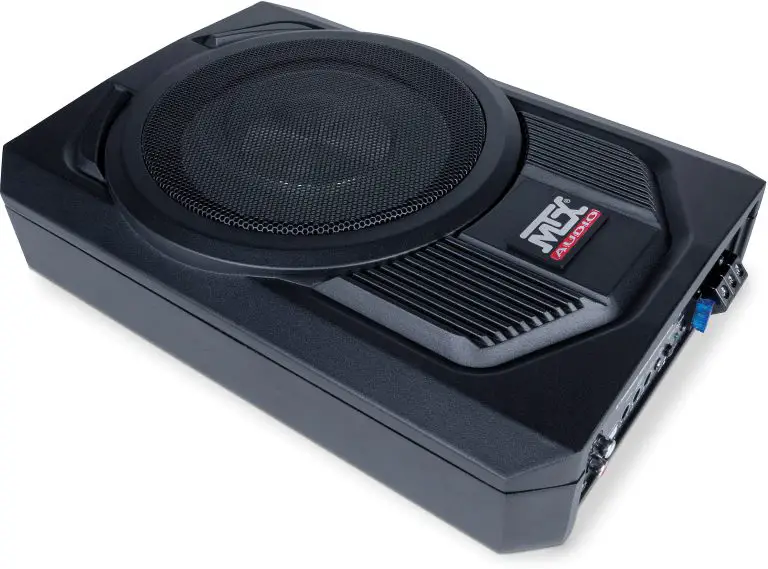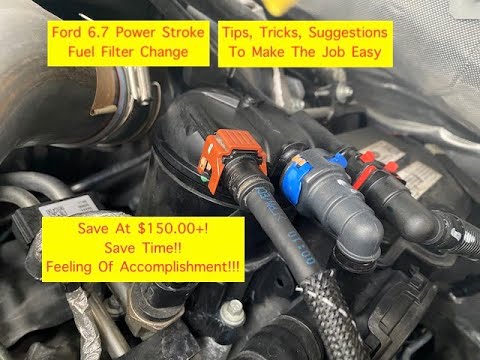Can Fuel Injector Cleaners Cause Problems? (Unveiling the Truth)
When it comes to maintaining our vehicles’ optimal performance, fuel injector cleaners have gained significant popularity. These products claim to be a convenient and affordable solution for improving fuel efficiency and engine performance by cleaning the fuel injectors—a critical component responsible for delivering fuel into the engine. However, as with any automotive maintenance product, it’s essential to consider both the benefits and potential drawbacks before adding them to your routine.
In this article, we delve into the intriguing question: Can fuel injector cleaners cause problems? We aim to provide you with a comprehensive overview of the topic, separating fact from fiction and shedding light on potential issues that could arise from the use of these cleaners.
To embark on this exploration, we’ll examine the functioning of fuel injectors, the purpose of fuel injector cleaners, and the common ingredients found in these products. Moreover, we’ll delve into the potential problems associated with their usage, including misconceptions, product quality concerns, and the risk of adverse reactions with certain vehicle components.
Join us as we demystify the realm of fuel injector cleaners and equip you with the knowledge needed to make informed decisions about maintaining your vehicle’s fuel system.
What Is A Fuel Injector?
A fuel injector is a crucial component in a vehicle’s fuel delivery system. Its primary function is to deliver pressurized fuel into the combustion chamber of an internal combustion engine. By precisely controlling the fuel flow, fuel injectors ensure the engine receives the optimal amount of fuel for efficient combustion.
Modern fuel injectors operate using advanced technology to atomize fuel into a fine mist, allowing for better fuel-air mixing and combustion. They work in conjunction with the engine control unit (ECU), which monitors various parameters such as engine load, throttle position, and oxygen levels in the exhaust gases to determine the fuel injection duration and timing.
Fuel injectors are typically positioned near the intake valves or directly in the combustion chamber. They consist of a nozzle through which fuel is sprayed, a solenoid or valve mechanism that controls the opening and closing of the nozzle, and various internal components to regulate fuel flow and pressure.
Precise and efficient fuel injection is essential for optimal engine performance, fuel economy, and emissions control. Regular maintenance and care of fuel injectors are vital to prevent clogging, deposits, or malfunctions that can lead to engine problems and reduced performance.
How To Know When You Should Clean Fuel Injector?
Knowing when to clean your fuel injector is crucial for maintaining the performance and efficiency of your vehicle’s engine. While there isn’t a specific mileage or time interval for cleaning fuel injectors, there are certain signs that indicate it may be necessary. Here are some key indicators that it’s time to clean your fuel injector:
1. Decreased Performance
If you notice a decline in your vehicle’s acceleration, power, or overall performance, it could be a sign of clogged or dirty fuel injectors. Deposits and debris can obstruct the fuel flow, leading to inadequate fuel delivery and compromised engine performance.
2. Poor Fuel Economy
A sudden decrease in fuel efficiency, where you’re getting fewer miles per gallon than usual, might suggest that your fuel injectors need cleaning. Clogged injectors can disrupt the proper fuel-air mixture, resulting in inefficient combustion and increased fuel consumption.
3. Rough Idle or Misfiring
A rough or unstable idle, as well as engine misfires or hesitation during acceleration, can indicate fuel injector issues. Deposits on the injector nozzles can disrupt the fuel spray pattern, causing uneven combustion and engine misfires.
4. Engine Stalling or Starting Problems
Clogged fuel injectors can lead to engine stalling or difficulty in starting, particularly when the engine is cold. Insufficient fuel delivery can hinder the ignition process, resulting in a rough start or even complete engine failure to start.
5. Increased Emissions
If your vehicle fails an emissions test or you notice a significant increase in exhaust emissions, it could be a sign of dirty fuel injectors. Inadequate fuel atomization can result in incomplete combustion, leading to higher levels of harmful pollutants in the exhaust gases.
Can Fuel Injector Cleaner Cause Problems?
While fuel injector cleaners are designed to improve the performance of your vehicle’s fuel system, it is important to acknowledge that they can potentially cause problems in certain situations. Here are a few considerations regarding the potential problems associated with fuel injector cleaners:
1. Misuse or Overuse
One of the common issues arises when fuel injector cleaners are used excessively or incorrectly. Using a cleaner more frequently than recommended or using the wrong type of cleaner can lead to an overabundance of cleaning agents in the fuel system, potentially causing damage to seals, gaskets, or other components.
2. Inadequate Cleaning
Not all fuel injector cleaners are created equal, and some may not effectively clean or remove deposits from the injectors. Low-quality or ineffective products may give a false sense of security while failing to address the underlying issues, potentially resulting in continued performance problems.
3. Dislodging Deposits
Fuel injector cleaners work by breaking down and removing deposits that have accumulated on the injectors over time. In some cases, the cleaning process may dislodge large deposits, which can potentially clog other parts of the fuel system, such as fuel filters or fuel lines. This can lead to restricted fuel flow and subsequent engine issues.
4. Compatibility Issues
Different vehicles and fuel systems have varying requirements and sensitivities. Some fuel injector cleaners may contain chemicals or additives that are not compatible with certain fuel system components or materials. This can result in adverse reactions, corrosion, or damage to the fuel injectors or other parts of the system.
5. Neglecting Underlying Issues
While fuel injector cleaners can be effective in addressing minor deposits, they may not be a solution for more significant underlying problems, such as mechanical issues with the injectors themselves. Relying solely on fuel injector cleaners without addressing these fundamental issues can lead to persistent problems and potential damage to the fuel system.
Possible Problems Of Using Fuel Injector Cleaner And How To Fix Them
While fuel injector cleaners are designed to improve fuel system performance, there are instances where problems can arise from their usage. Here are some potential issues associated with fuel injector cleaners and suggestions on how to address them:
1. Residual Deposits
In some cases, using a fuel injector cleaner may loosen deposits from the fuel system, which can then settle elsewhere, such as in the fuel lines or filters. This can lead to restricted fuel flow and potentially cause engine performance issues. To address this problem, consider replacing the fuel filter and, if necessary, clean or flush the fuel lines to ensure proper fuel flow.
2. Seal and Gasket Damage
Certain fuel injector cleaners, especially if used excessively or containing harsh chemicals, can potentially cause damage to seals, gaskets, or other fuel system components. If you suspect this has occurred, it is recommended to have a professional mechanic inspect and replace any damaged parts as needed.
3. Compatibility Issues
Fuel injector cleaners may contain additives that are not compatible with certain fuel system materials or components. This can result in corrosion or damage. To avoid compatibility problems, carefully select a fuel injector cleaner that is specifically formulated for your vehicle’s fuel system. Consult your vehicle’s manual or seek guidance from a reputable mechanic or dealer.
4. Persistent Performance Issues
If you continue to experience performance problems after using a fuel injector cleaner, it’s possible that the underlying issue may require further attention. The cleaner may have addressed minor deposits, but there could be other mechanical issues with the injectors or fuel system that require professional diagnosis and repair. Consulting a qualified mechanic is recommended for a thorough inspection and proper resolution.
5. Excessive or Improper Use
Misuse of fuel injector cleaners, such as using them more frequently than recommended or using the wrong type or dosage, can potentially cause problems. Follow the instructions provided by the manufacturer regarding dosage and frequency. If you suspect overuse or misuse, it is advisable to consult a professional who can assess the situation and provide guidance on how to mitigate any potential damage.
Frequently Asked Questions
Q: Can fuel injector cleaners cause problems?
A: While fuel injector cleaners are generally safe and effective when used as directed, there is a potential for problems in certain situations. Here are some frequently asked questions related to potential problems caused by fuel injector cleaners:
Q: Can using fuel injector cleaners damage my engine?
A: When used properly, fuel injector cleaners should not damage your engine. However, overuse or using the wrong type of cleaner can potentially lead to issues such as damage to seals, gaskets, or other fuel system components.
Q: Can fuel injector cleaners clog my fuel lines or filters?
A: In some cases, fuel injector cleaners can dislodge deposits from the fuel system, which may settle in fuel lines or filters and cause restricted fuel flow. It is recommended to replace the fuel filter and clean or flush the fuel lines if you suspect this has occurred.
Q: Are all fuel injector cleaners compatible with my vehicle?
A: Not all fuel injector cleaners are compatible with every vehicle. Some cleaners may contain additives that are not suitable for certain fuel system materials or components. It is important to choose a cleaner that is specifically formulated for your vehicle or seek professional guidance to ensure compatibility.
Q: What if I experience persistent engine performance issues after using a fuel injector cleaner?
A: If performance problems persist after using a fuel injector cleaner, there may be underlying issues that require further attention. It is advisable to consult a qualified mechanic who can diagnose and address any mechanical problems with the injectors or fuel system.
Q: Can using too much fuel injector cleaner cause problems?
A: Excessive or improper use of fuel injector cleaners can potentially cause problems. It is crucial to follow the manufacturer’s instructions regarding dosage and frequency. Overuse can result in damage to fuel system components or the fuel-air mixture becoming too lean, leading to engine issues.
Q: How can I minimize the risks of using fuel injector cleaners?
A: To minimize potential problems, choose reputable fuel injector cleaners specifically designed for your vehicle’s fuel system. Follow the instructions provided by the manufacturer, avoid overuse, and consult a professional if you have any concerns or experience persistent issues.




